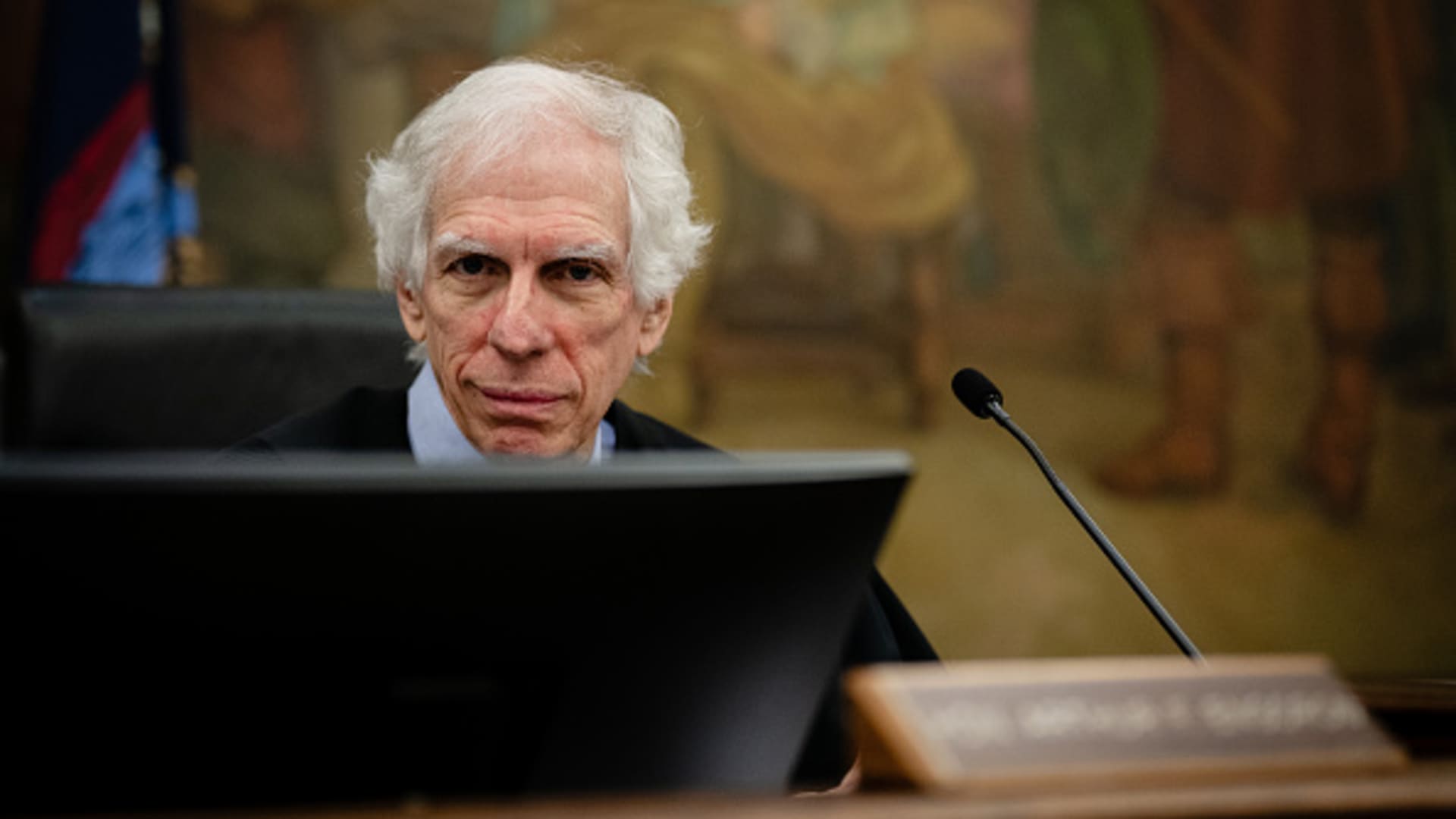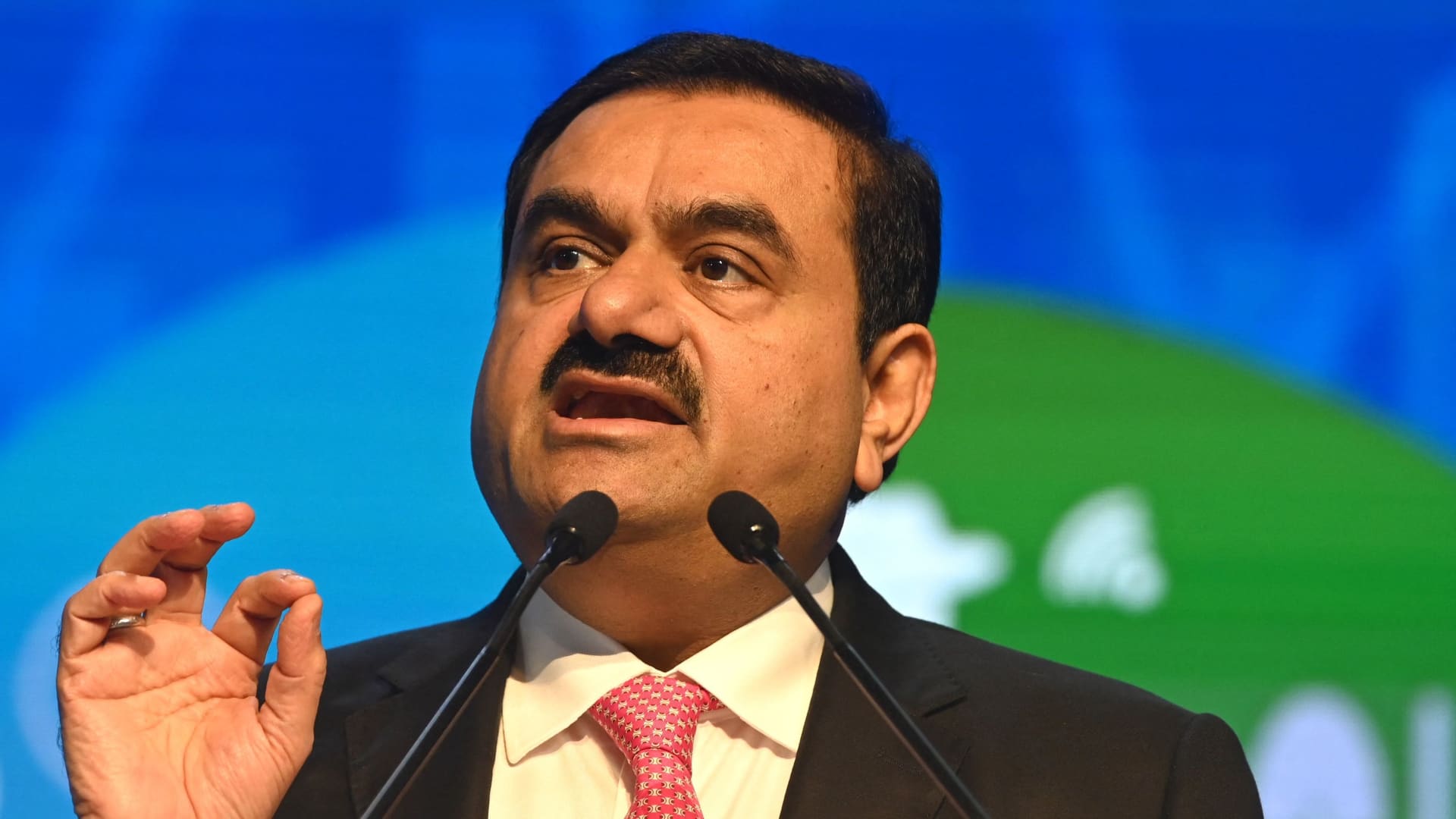4 ways China is trying to interfere in Taiwan’s presidential election
Taiwanese authorities are investigating 102 cases of foreign interference related to this year’s election, according to the Supreme Prosecutors Office — the highest number since Taiwan enacted an anti-infiltration law in 2019. Many of them are related to China, which has an interest in unseating the ruling Democratic Progressive Party (DPP), which it sees as promoting formal independence, and seeing a more Beijing-friendly president in office.
How these attempts fare matter beyond Taiwan. The next Taiwanese president’s stance toward Beijing will be a factor in whether China initiates conflict in the Taiwan Strait, one that could draw in the United States and neighboring countries, disrupting global shipping lanes and supplies of critical technology.
What’s more, influence tactics that prove useful in Taiwan could be replicated elsewhere. Taiwanese Foreign Minister Joseph Wu warned on Tuesday: “In 2024, there are more than 40 important democratic elections in the world. If China succeeds in Taiwan, China will use that experience to interfere in the elections of other countries.”
But measuring the impact or even the presence of Chinese influence efforts is becoming more difficult. Aware that overly blunt tactics could push voters away from China’s preferred party — the Kuomintang (KMT) — and toward the DPP, which is leading in polls, China appears wary of overdoing it.
“There’s a real potential for it to backfire,” said Alexander Dukalskis, an associate professor at University College Dublin and the author of “Making the World Safe for Dictatorship.” “People don’t want to be bullied and intimidated into being told how to vote.”
The Biden administration has warned China against interfering, while Beijing has accused the DPP of “hyping up” the military threat from China for votes.
“The Chinese have been hammering away at them with so many different kinds of mechanisms, and it looks at least right now that their least favorite candidate is going to win,” said a senior U.S. administration official, who spoke on the condition of anonymity because of the matter’s sensitivity. “So that is an indication that the system is more resilient.”
Whether or not these measures affect the election, they can still further China’s aims in Taiwan steadily and gradually. “If I can influence 3 to 5 percent of the people, then I can influence the election result,” said Chang Chun-Hao, a professor of political science at Tunghai University in Taiwan. “And even if you don’t affect the election results, you have still furthered the unification campaign.”
These are the four main ways Beijing has been accused of trying to interfere in Taiwan’s presidential election this year:
1. Sowing information chaos
Chinese misinformation in Taiwan used to be easier to catch, with news articles or social media posts clunkily written with vocabulary used mainly in China or in simplified Chinese text instead of the traditional script used in Taiwan. Now, that campaign has been localized, and Chinese propagandists have been encouraged to amplify authentic local disputes and divisions, said Tim Niven, head of research at Taiwan’s Doublethink Lab. “It’s putting Taiwanese polarization on steroids,” he said.
In the past year, Taiwan has been awash with rumors, including that Taiwanese officials, under orders from Washington, were collecting blood samples from citizens to engineer genetic weapons against China, or that the United States pushed Taiwanese chipmaker TSMC to set up a factory in Arizona so it could abandon Taiwan and its chip supply chains.
For months, the idea that the United States is not a reliable partner, a concept known as yimeilun, or “America skepticism,” has gained traction thanks to consistent amplification by Chinese media.
Beijing’s influence campaign has also tapped networks of local Beijing-friendly content creators. Taiwanese authorities are investigating a digital media company that runs more than 20 Facebook pages with large followings and regularly criticizes the DPP.
The group’s owner was offered content and financial support by a Chinese state media journalist, according to screenshots of the conversations shared with The Washington Post by a security officer involved in the case.
The officer, who spoke on the condition of anonymity to share details of an ongoing investigation, said Chinese propagandists often pay Taiwanese influencers to spread narratives that undermine Taiwan’s democratic process. Sometimes the goal isn’t necessarily to support a particular candidate, but rather to disrupt the election and “make it chaotic,” he said.
2. Co-opting local officials
Over the past year, China has taken hundreds of local-level Taiwanese officials to Chinese cities. There, sway efforts have been as blatant as handing out vouchers for the streaming platform iQiyi and instructing the visitors to vote for pro-unification candidates, according to Taiwan’s prosecutors office.
These exchanges, in which Taiwanese officials are hosted in China on heavily subsidized trips, have long been seen as an avenue for grass-roots influence operations, with the expectation that they will return with a pro-China message. Taiwanese authorities are investigating 40 people in relation to these visits and potential election interference.
In other cases, the message was more subtle. Chinese officials told their Taiwanese guests to remember that the two sides of the Taiwan Strait are “one family,” according to officials who went on these exchanges. In some, the Chinese hosts were careful not to say anything about the election for risk of jeopardizing these visits.
“They would say that the mainland very much hopes the two sides of the Taiwan Strait can be united and that everyone can sit down and talk,” said one village chief from the Taipei area who went on two trips to China last year. He spoke on the condition of anonymity because he is among those being investigated.
“They all want to push unification, or to infiltrate your thinking. It’s just some use more subtle methods and others use more crude methods,” he said.
3. Wielding economic sticks and carrots
Starting Jan. 1, China canceled preferential tariffs on 12 chemical compounds from Taiwan. On Tuesday, China’s Commerce Ministry said it was studying the possibility of canceling other tariff concessions for agriculture, fish, machinery, auto parts and textiles, measures that Chinese officials said would continue if the DPP maintains its “pro-independence position.”
At the same time, Beijing is dangling carrots to others that show some fealty to China. In June, Chinese authorities resumed previously banned imports of sugar apples from some companies after the mayor of Taitung, where the fruit is grown, visited China along with the KMT’s vice chairman.
In December, China said it would resume some imports of grouper after banning it in June. But only imports from six individuals and one company, whose chairman visited China the month before, will be allowed.
“The goal is telling those voters who have economic ties with China that they better vote for the candidate [Beijing] prefers,” said Chiou Yi-Hung, an associate professor of international relations at National Yang Ming Chiao Tung University.
4. Ramping up ‘gray zone’ military intimidation
China’s military, the People’s Liberation Army, has increased military incursions near Taiwan over the past year to remind citizens of Beijing’s promise to “reunite” with Taiwan by force if necessary.
Ahead of the election, China appears to be using new forms of “gray zone” tactics, aggressive measures that stop short of open conflict and are meant to intimidate. Since December, China has sent at least 31 high-altitude balloons — similar to the one discovered and shot down over the United States last year — into Taiwan’s airspace. Taiwan’s Defense Ministry described the balloons as “cognitive warfare” intended to demoralize Taiwan’s 23 million people.
On Tuesday, days before polls were to open, China launched a satellite that unexpectedly crossed over southern Taiwan before entering space, according to Taiwan’s Defense Ministry. The launch prompted a rare nationwide emergency alert, whose English version mistakenly described the object in question as “a missile flyover,” alarming residents.
Menn reported from San Francisco. Ellen Nakashima in Washington contributed to this report.







